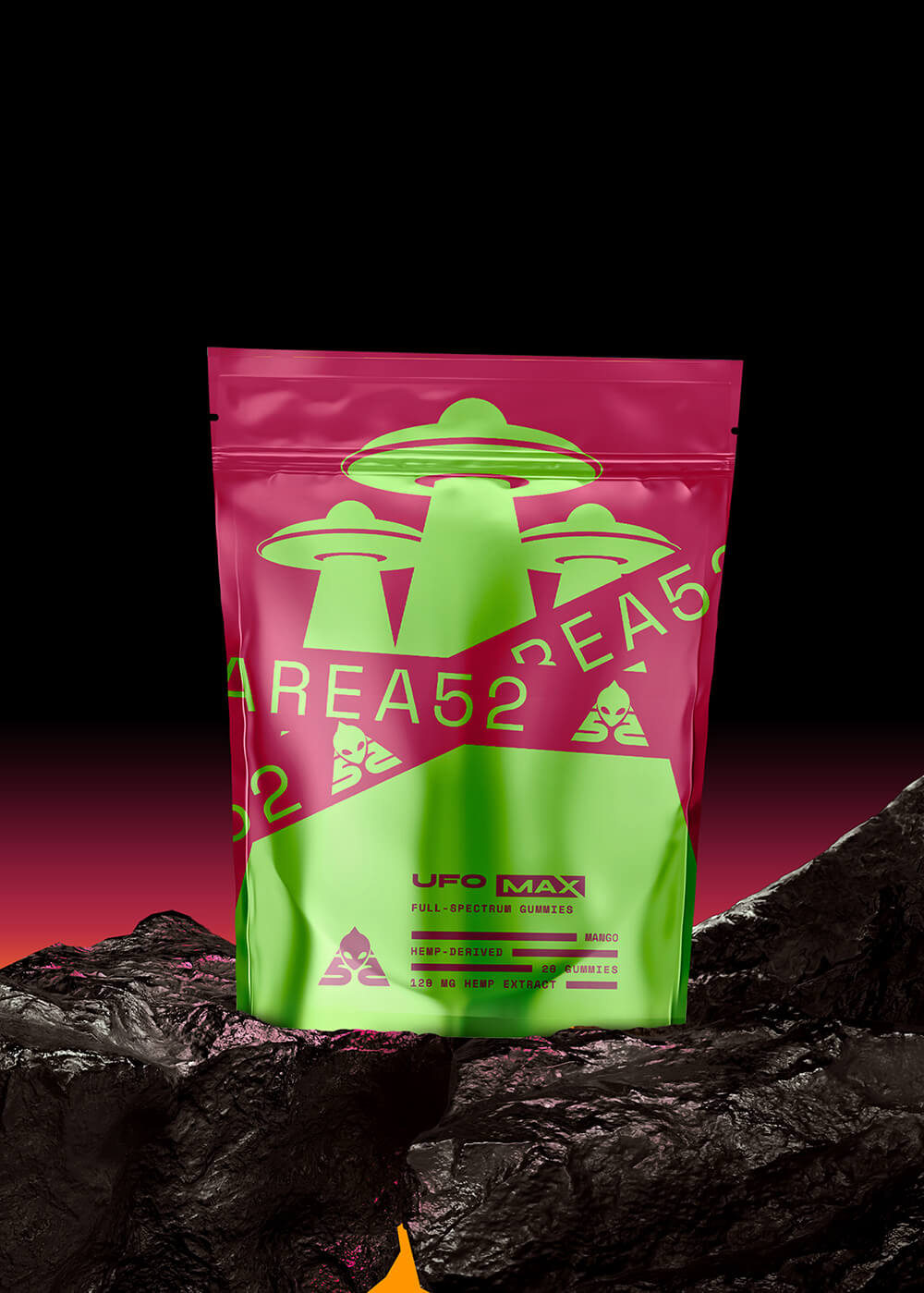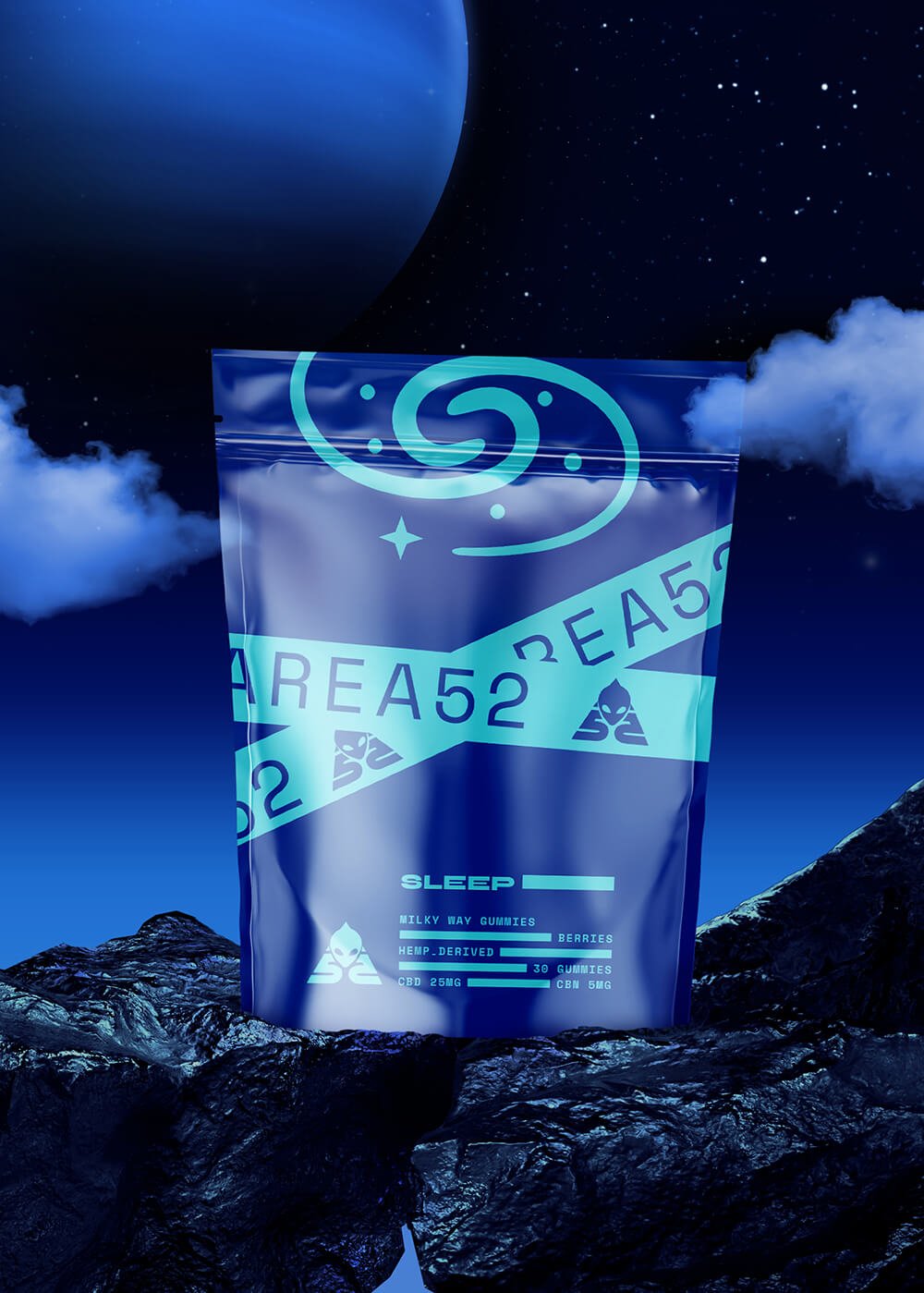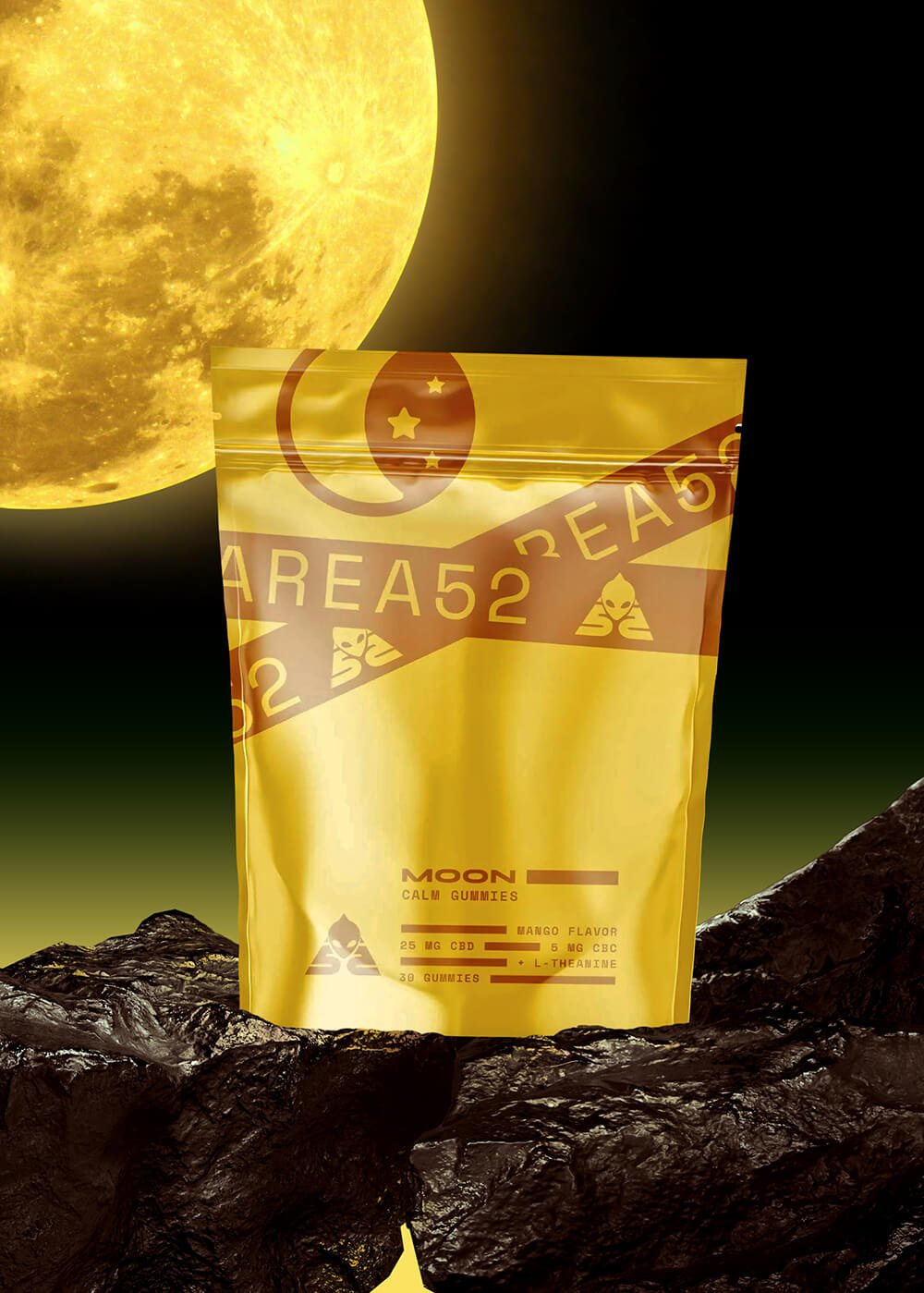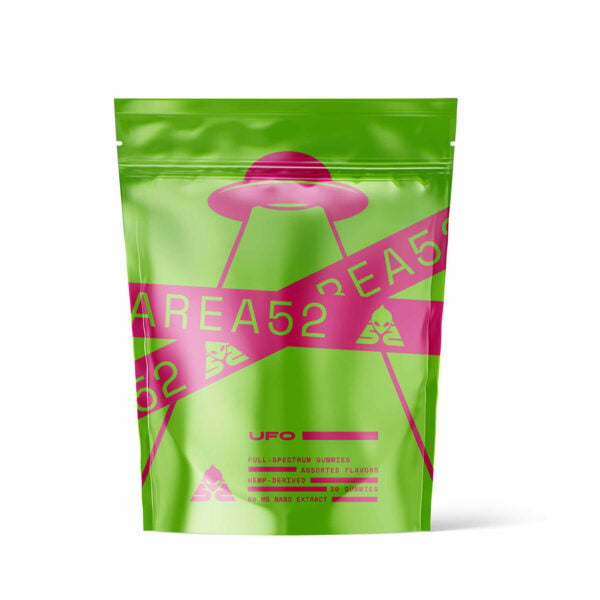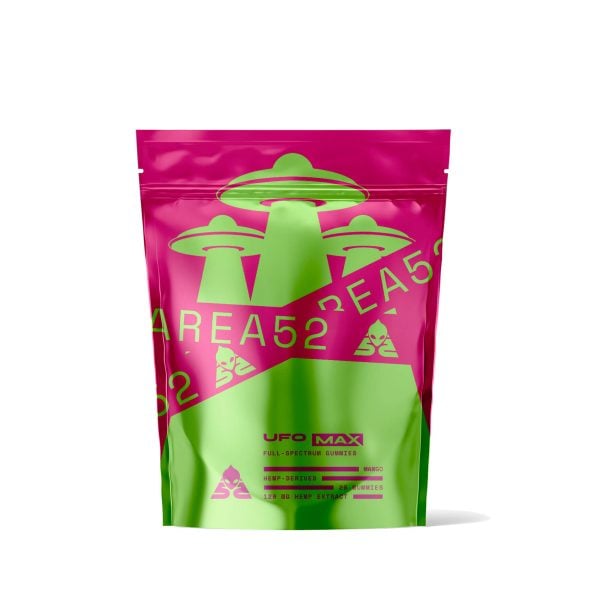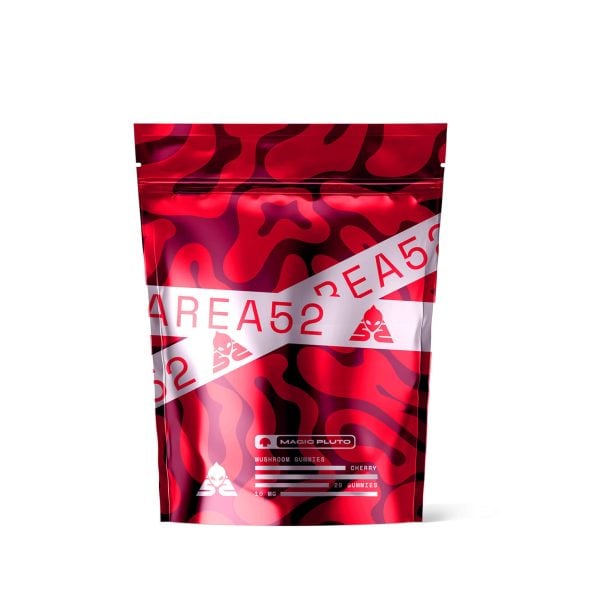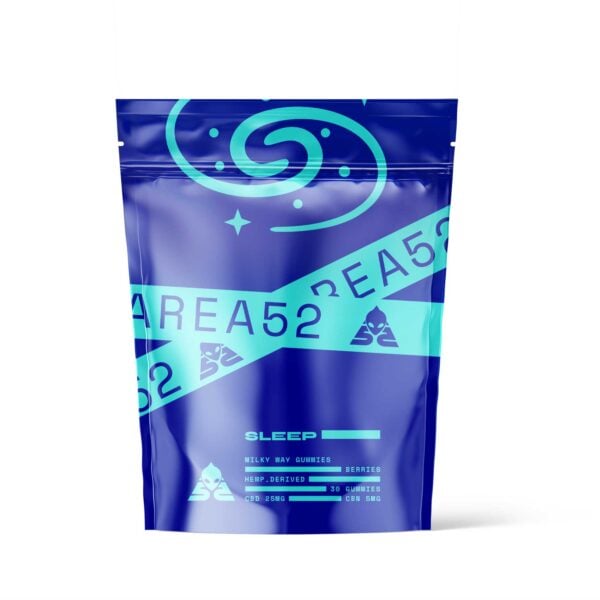Does HHC Show Up on a Drug Test?
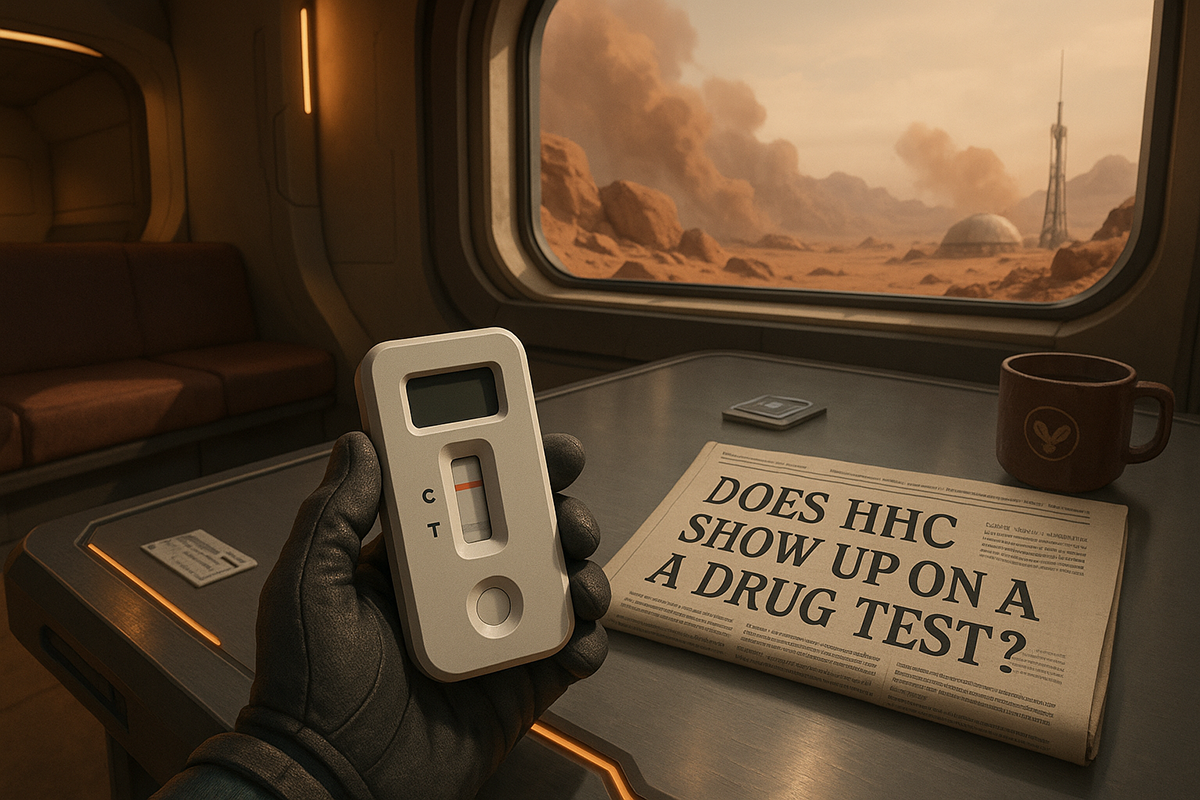
If you’re considering taking HHC — or are already taking it — you need to know that it will probably show up on a drug test.
HHC has a chemical structure that’s similar to the THC molecule and lingers in the body for a similar amount of time, so make sure you understand the risks if you’re taking a drug test soon.
This article explains everything you need to know about HHC and drug testing, including what factors control how long it stays in your system and how you can eliminate it more quickly.
What Is HHC?
HHC naturally occurs in cannabis plants like hemp and marijuana and has a chemical structure that’s similar to the delta 9 THC molecule. Like other psychoactive hemp derived cannabinoids like delta 8 and delta 10, users say hexahydrocannabinol products make them feel ready to go and that they produce a less-conspicuous high than ordinary THC.
Chemically, HHC is the same as THC, minus the presence of a single, double bond in the chemical structure. The difference is subtle, but it’s what gives HHC its characteristic effect profile.
What Does HHC Metabolize Into?
Just like how the body metabolizes THC, the liver also breaks down HHC into smaller HHC metabolites, and these cannabinoid metabolites also have similar chemical structures to THC metabolites.
Because HHC and THC share many similarities, standard drug tests can also detect HHC in the system.
Will HHC Cause You to Fail a Drug Test?
HHC will likely cause you to fail a drug test, so you should avoid using it if you know you will be tested soon.

HHC is chemically similar to THC and will metabolize into many of the same compounds, including THC-COOH, which is one of the primary markers used to detect THC in a blood, urine, or saliva sample. It’s also possible to detect this compound in the hair, but these tests are less reliable.
There’s a lot of information being shared online that HHC is somehow immune to drug screening. Unfortunately, there’s not much evidence to back this up, and there’s a rising pool of evidence to suggest the opposite.
The frequency of use is important. People who take HHC often need to stop at least 2 weeks before the test or are very likely to fail. People who only used HHC once may only need to wait 3 days.
How Long Does HHC Stay In Your System?
Unfortunately, there aren’t any studies on HHC’s effects in humans, making it hard to know for certain how long HHC hangs around in your system. However, since it’s chemically similar to delta 8 and delta 9 THC, it’s safe to use those as a baseline.
HHC will likely remain in the system somewhere between 2 and 30 days. The user’s age, the dosage used, and individual metabolism can all affect how long it takes the body to eliminate HHC from the system.
Let’s take a closer look at the most important factors that determine how long HHC stays in your system.
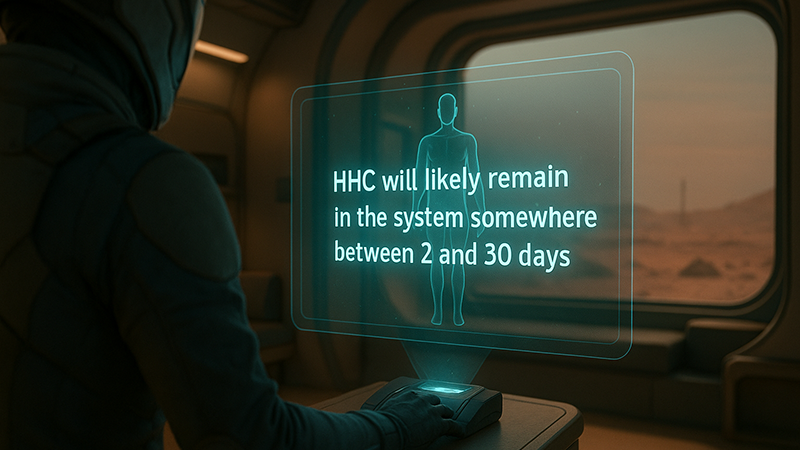
What Factors Affect How Long HHC Stays In Your System?
The biological half-life of HHC is probably around 30 minutes, assuming it has approximately the same half-life as delta 8 THC. However, the biological half-life only tells you how long a substance remains in your bloodstream. How long HHC spends in your fat cells, hair, and other tissues depends on several factors.
1. The More Often You Use HHC, The Longer It Stays In The System
Using HHC products more frequently makes it take longer for your body to remove it.
To understand why you must know that cannabinoids are fat-soluble, which means your body’s fat cells absorb and store them. Removing a cannabinoid like HHC from fat cells takes much longer than removing it from the bloodstream. If you continually use HHC, your body won’t have a chance to remove it, and it will start accumulating in your fat cells.
If you use HHC sparingly — once or twice per week — your body will be HHC-free after about one week. People who use HHC daily will have to stop using it for 2–3 weeks before it’s detectable in their blood and urine.
2. HHC Is Eliminated Twice As Quickly In Younger Users
As people age, their metabolism slows down, making it harder for their bodies to process substances and medication.
Rough estimates suggest that an average person in their mid-twenties processes HHC approximately twice as quickly as an average person in their mid-sixties. A dose of HHC that takes a 25-year-old’s body three days to process might take a 65-year-old a week to eliminate.
Individual differences tend to be at least as large as differences due to age, so it’s important to remember that these are only rough figures.
3. Some People Are Naturally Slow At Metabolizing Cannabinoids
Your body’s metabolism determines how quickly your body can process the substances you take in. People with fast metabolism process substances like HHC more quickly than people with slow metabolisms, leading to lower concentrations of HHC sooner after using it.
HHC is broken down in the liver and removed from the body by the kidneys. How quickly and efficiently your liver and kidneys function determines how fast a complex compound like HHC gets processed by your body.
Your liver relies on a specific enzyme called CYP3A4 to process THC-like molecules. Everyone has a slightly different natural concentration of CYP3A4 that makes them more or less capable of processing HHC. People with higher CYP3A4 concentrations metabolize HHC more quickly than those with lower concentrations.
4. Vaping or Smoking Remain In The Body For The Least Amount of Time
Many HHC users don’t realize that the delivery mechanism plays a major role in how long it stays in their system. Inhaling HHC from a cartridge leads to the quickest onset of effects and fastest elimination, making it the preferred method for people worried about testing positive on a drug test.
Inhaling HHC causes it to be absorbed through the lungs directly into the bloodstream in mere minutes. This lets your liver get to work on it sooner and reduces the time it takes for your body to start removing it from your system.
By comparison, ingesting HHC takes approximately twice as long for your body to process since it must pass through the slow digestive system before it’s absorbed into the blood.
5. Higher Doses of HHC Remain in the Body Longer
It might seem obvious, but how much HHC you take affects how long it stays in your system. Your liver can only process so much HHC at once, but it can process it quickly. Taking twice as much HHC might increase the time it stays in your system by an hour or two, but it won’t make a difference after a day.
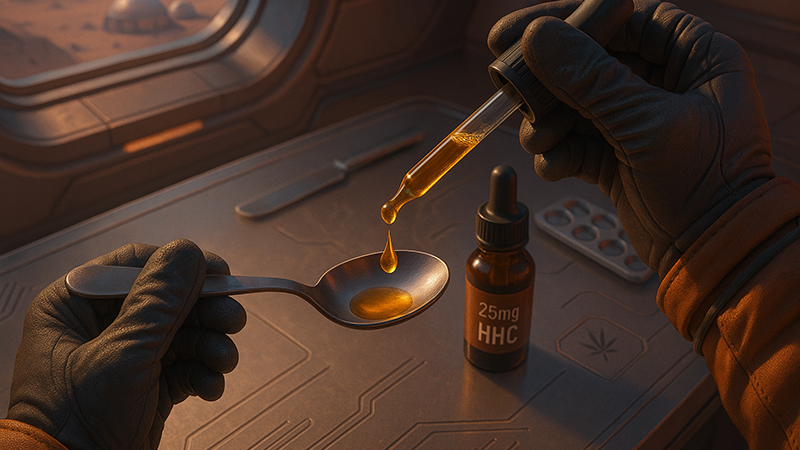
6. Some Medications Can Slow The Body’s Ability To Eliminate HHC
A less obvious factor is metabolic competition. Taking medications that use the same metabolic resources as HHC can make your body take significantly longer to process and eliminate both substances from your body.
Metabolic competition presents a problem for two reasons. First, HHC will linger in your system, making it more likely for you to fail a drug test. And second, your medications will be processed more slowly, possibly making them more effective. That might sound like a good thing, but it’s potentially dangerous.
The bad news is that CYP3A4 is one of the most commonly used liver enzymes, which means that it’s very likely that most medications rely on it to some extent. Unfortunately, it’s difficult to know the magnitude of this effect, so the safest approach is to limit or avoid HHC use while you’re on medication, especially if you have a drug test on the horizon.
Does HHC Get You High?
HHC is a psychoactive cannabinoid and will produce effects comparable to delta 8 and delta 9 THC. Additionally, HHC is also said to be incredibly invigorating, making it somewhat unique among cannabinoids.
There are currently no studies on HHC in humans, so the information about its psychoactive properties comes entirely from user reports. Still, the consistency between reports makes the evidence compelling.
Conclusion: HHC & Drug Tests Will Likely Cause Problems
HHC will most likely show up on a drug test, so it’s a good idea to limit use if you know you have to take a drug test soon.
Relatively little is known about HHC compared to other cannabinoids like THC and CBD, but it’s chemically similar enough to make reliable guesses about how the body metabolizes it. Many of the factors that determine how quickly your body eliminates HHC are out of your control, but two of the most important — ingestion method and dose — are tunable.
FAQs on HHC Drug Test
Want to know more about HHC and drug tests? Below are some of the most commonly asked questions about HHC and drug testing.
1. Do HHC Drug Tests Exist?
There’s no specific HHC drug test that exists yet, but because HHC and its metabolites share similar chemical structures with THC, most drug tests will be able to detect HHC usage not only in the urine, saliva, and blood but in hair samples as well.
2. Is HHC Detectable in a Drug Test?
Yes, HHC is detectable in drug urine tests, blood tests, saliva tests, and hair tests, and HHC consumption can trigger a positive test result.
3. Does HHC Show on Oral Drug Tests?
Yes. HHC can also show up on oral drug tests like saliva tests. Factors influencing HHC detection in the saliva include metabolism, HHC dosage, frequency of use, and duration of use.
4. Do Cannabinoids Show Up in Drug Tests?
Not all cannabinoids show up in standard drug tests. For example, consumption of pure CBD and pure CBG won’t trigger a positive drug test simply because standard drug tests aren’t sensitive to these specific cannabinoids. However, consumption of full-spectrum CBD products can result in a failed drug test because it contains trace amounts of THC. That said, avoid consuming any cannabis products with THC and its variants if you have a scheduled urine drug test coming up.
5. Does HHC Show Up on a Breathalyzer?
No. HHC won’t show up on a breathalyzer. Breathalyzers detect alcohol or ethanol content in the breath. It can’t detect HHC or multiple cannabinoids in the breath.
